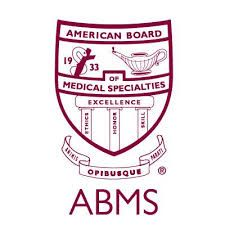
Join to View Full Profile
520 E 70th St, Starr 4Weill Cornell Medicine, CardiologyNew York, NY 10021
Phone+1 646-962-2150
Dr. Lo is on Doximity
As a Doximity member you'll join over two million verified healthcare professionals in a private, secure network.
- Gain access to free telehealth tools, such as our “call shielding” and one-way patient texting.
- Connect with colleagues in the same hospital or clinic.
- Read the latest clinical news, personalized to your specialty.
Summary
- Dr. James Lo is a cardiologist in New York, NY and is affiliated with multiple hospitals in the area, including New York-Presbyterian Hospital and New York-Presbyterian Hospital. He received his medical degree from University of Chicago Pritzker School of Medicine and has been in practice 11 years. He specializes in cardiac critical care.
Education & Training
 Mass General Brigham/Brigham and Women's HospitalFellowship, Cardiovascular Disease, 2008 - 2013
Mass General Brigham/Brigham and Women's HospitalFellowship, Cardiovascular Disease, 2008 - 2013 Mass General Brigham/Massachusetts General HospitalResidency, Internal Medicine, 2006 - 2008
Mass General Brigham/Massachusetts General HospitalResidency, Internal Medicine, 2006 - 2008 University of Chicago Division of the Biological Sciences The Pritzker School of MedicineClass of 2006
University of Chicago Division of the Biological Sciences The Pritzker School of MedicineClass of 2006
Certifications & Licensure
 NY State Medical License 2015 - 2026
NY State Medical License 2015 - 2026 MA State Medical License 2008 - 2015
MA State Medical License 2008 - 2015 American Board of Internal Medicine Cardiovascular Disease
American Board of Internal Medicine Cardiovascular Disease
Publications & Presentations
PubMed
- C3aR1 on β cells enhances β cell function and survival to maintain glucose homeostasis.Renan Pereira de Lima, Ang Li, Ankit Gilani, Alfonso Rubio-Navarro, Charles D Warren
Molecular Metabolism. 2025-04-04 - Complement 3a receptor 1 on macrophages and Kupffer cells is not required for the pathogenesis of metabolic dysfunction-associated steatotic liver disease.Edwin A Homan, Ankit Gilani, Alfonso Rubio-Navarro, Maya A Johnson, Odin M Schaepkens
Elife. 2025-01-08 - Cross-species single-cell RNA-seq analysis reveals disparate and conserved cardiac and extracardiac inflammatory responses upon heart injury.Eric Cortada, Jun Yao, Yu Xia, Friederike Dündar, Paul Zumbo
Communications Biology. 2024-12-03
Press Mentions
 GLP-1 Med Users See Drop in Recurrent Afib EventsApril 26th, 2025
GLP-1 Med Users See Drop in Recurrent Afib EventsApril 26th, 2025 How Does COVID-19 Affect the Heart? New Clues AriseAugust 1st, 2022
How Does COVID-19 Affect the Heart? New Clues AriseAugust 1st, 2022 COVID-19 May Trigger Diabetes by Causing Fat Cells to Go HaywireJanuary 20th, 2022
COVID-19 May Trigger Diabetes by Causing Fat Cells to Go HaywireJanuary 20th, 2022- Join now to see all
Grant Support
- Mechanisms of Obesity-induced Atrial FibrillationWEILL MEDICAL COLL OF CORNELL UNIV2025–2028
- Mechanisms of Obesity-induced Atrial FibrillationWEILL MEDICAL COLL OF CORNELL UNIV2025–2028
- Assessing the Impact of SARS-CoV-2 on Adipose Tissue Function and Glucose HomeostasisWEILL MEDICAL COLL OF CORNELL UNIV2023–2028
- Alternative complement pathway regulation of beta cell homeostasisWEILL MEDICAL COLL OF CORNELL UNIV2020–2025
- An Obesity-Induced Kinase that Regulates Adipose Homeostasis and Metabolic DiseasesWEILL MEDICAL COLL OF CORNELL UNIV2019–2025
Viewing the full profile is available to verified healthcare professionals only.
Find your profile and take control of your online presence:









